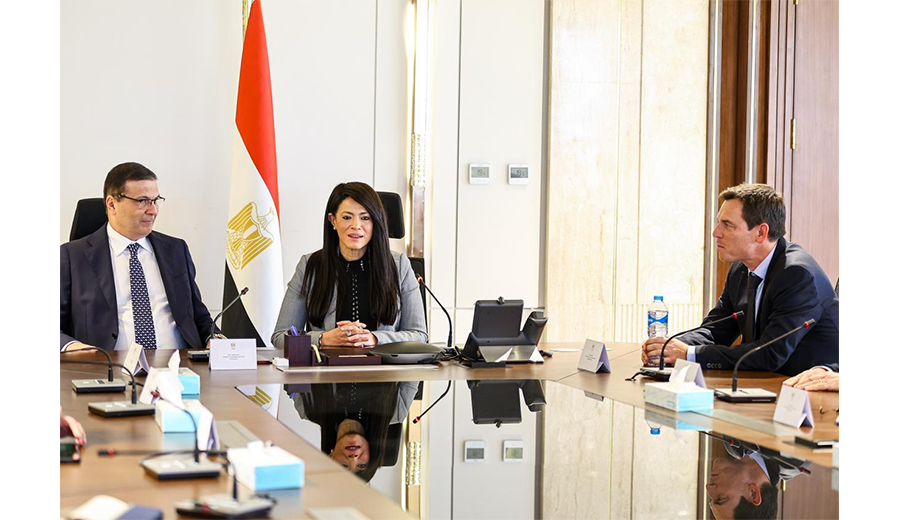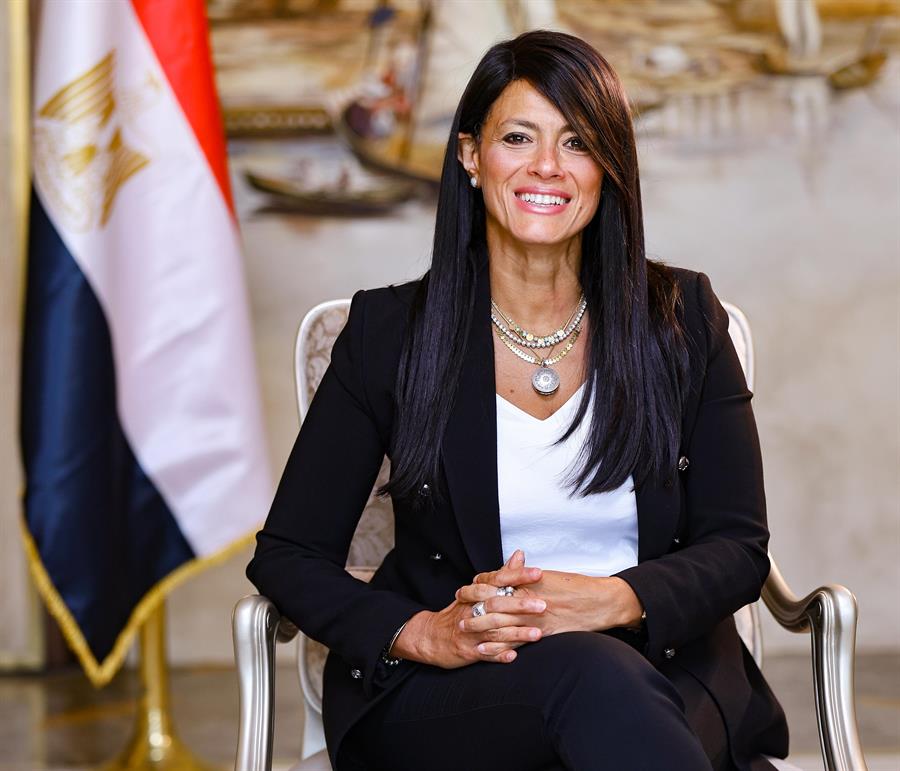Minister of Planning, Economic Development, and International Cooperation Meets the Saudi Minister of Economy and Planning to Discuss Ways to Enhance Bilateral Relations
17 February 2025
During the activities of the "AlUla" Conference for Emerging Market Economies
Minister of Planning, Economic Development, and International Cooperation Meets the Saudi Minister of Economy and Planning to Discuss Ways to Enhance Bilateral Relations
H.E. Dr. Rania A. Al-Mashat, Minister of Planning, Economic
Development, and International Cooperation, met with Faisal bin Fadel
Al-Ibrahim, Minister of Economy and Planning of Saudi Arabia, during her
participation in the "AlUla" Conference for Emerging Market
Economies, organized by the Saudi Ministry of Finance and the International
Monetary Fund (IMF), under the theme "Building Resilience in a Changing
World."
The meeting focused on ways to strengthen the bilateral
relations between the Arab Republic of Egypt and the Kingdom of Saudi Arabia in
various fields, in line with the strong and historical ties between the two
brotherly countries. Additionally, the discussions included enhancing bilateral
cooperation through joint efforts to achieve sustainable development goals at
the national level.
At the beginning of the meeting, the Minister of Planning,
Economic Development, and International Cooperation commended the strong
relationship between the Arab Republic of Egypt and the Kingdom of Saudi Arabia
across various levels. H.E. Dr. Al-Mashat highlighted the importance of the
Emerging Market Economies Conference and its topics, particularly in light of
the consecutive challenges faced by these countries due to global crises and
regional and international tensions.
H.E. Dr. Rania Al-Mashat pointed out the efforts of the
Ministry of Planning, Economic Development, and International Cooperation in
following up on the implementation of the National Economic and Structural
Reform Program, in coordination with relevant ministries and agencies, and in
collaboration with international development partners.
H.E. Dr. Al-Mashat emphasized the significance of attracting
financing to support the budget and facilitate the implementation of structural
reforms. She affirmed that reform is an ongoing process to align with local and
global economic changes, open space for the private sector, enhance
competitiveness, improve the business environment, ensure macroeconomic
stability, support the transition to a green economy, and create future
prospects for comprehensive and sustainable development.
H.E. Minister Al-Mashat reviewed mechanisms for enhancing
South-South cooperation and trilateral cooperation, viewing them as pivotal for
leveraging the potential of developing countries to create innovative solutions
for development and benefiting from successful developmental practices and
experiences.
H.E. Dr. Al-Mashat noted the ministry’s efforts to launch
the South-South and trilateral cooperation strategy within the framework of the
first New Development Bank meeting held in Egypt, aimed at expanding the
replication of successful development experiences between developing and
emerging countries and promoting efforts to exchange expertise and technology
among developing nations.
The two sides reviewed initiatives and projects that could
enhance sustainable economic development in both countries, focusing on
innovation and technology, reviewing successful experiences from both Egypt and
Saudi Arabia, and analyzing the challenges and opportunities facing the
economies of developing countries. They also discussed potential areas for
cooperation on major projects that support economic growth.
H.E. Dr. Al-Mashat reiterated the need to continue working
closely with development partners to support the international response for the
recovery of economies affected by conflict in the Middle East. She clarified
that achieving macroeconomic stability is necessary but not sufficient for
sustaining growth and achieving a resilient economy. Stability must be
accompanied by a series of structural reforms that address short-term
imbalances and enhance long-term stability.









